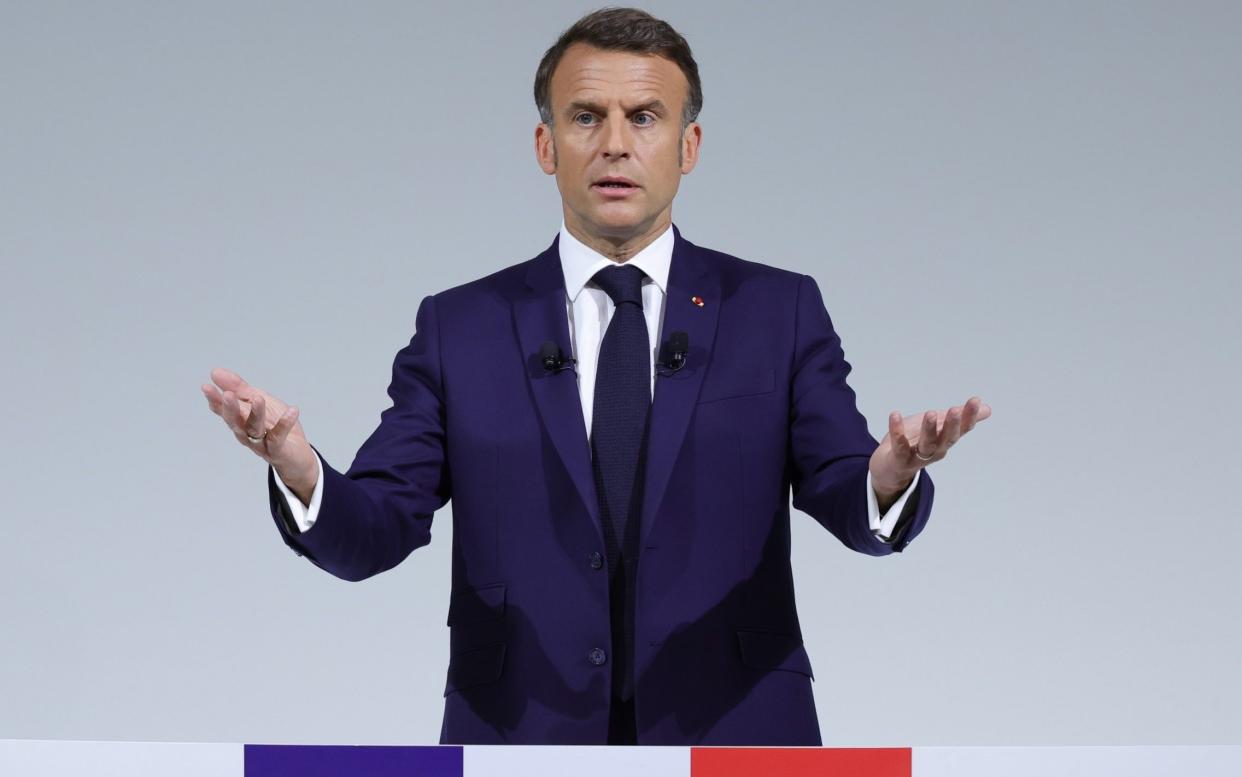Macron backs ban on use of smartphones for under 11s

Emmanuel Macron has backed a ban on use of smartphones before the age of 11 and social media before the age of 15.
The French president came out in favour of proposals in a report submitted to the Elysée by a commission of experts on the impact of young people’s exposure to screens.
“All the experts say that screen addiction is the breeding ground for all kinds of problems: harassment, violence, dropping out of school,” he said at a press conference to launch the campaign for early parliamentary elections.
The plan to ban social networks for under 15s was already included in the French government’s programme for the European elections.
During his speech on Europe at the Sorbonne in April, Mr Macron defended the idea of parental controls over access to social networks before that age.
However, the practicalities of implementing such a measure have yet to be defined: in April, Marina Ferrari, the digital economy minister, convened a meeting of industry players at Bercy to discuss, among other things, a technical solution for controlling the age of Internet users wishing to access certain sites.
In a letter sent in mid-August, Thierry Breton, the EU’s internal market commissioner, criticised the government for adopting a law aimed at introducing a ban before the age of 15, which he felt “contradicted” the European framework.
Limiting screen time
In France, tools for limiting screen time for minors are already available on certain applications and phones, and are listed on a government website.
Parents can limit the amount of time they spend on social network apps, like Instagram or TikTok, and set online connection limits on iPhones or consoles.
Meta, for its part, has introduced a “late notification” feature that appears “automatically” on the Instagram account of under-age users if they use the application between 10pm and 4am, to encourage them to close it.
Making the adoption of these tools compulsory would mean placing this legal responsibility on apps or parents.
“Technically, the government could ask applications to block access after a certain time,” Olivier Ertzscheid, a lecturer in information and communication sciences, told AFP in January.
He added that the question would be more one of the legal basis and social acceptability of such an obligation.
“This type of measure would be unprecedented in a democratic European country,” he added.

 Yahoo News
Yahoo News 
